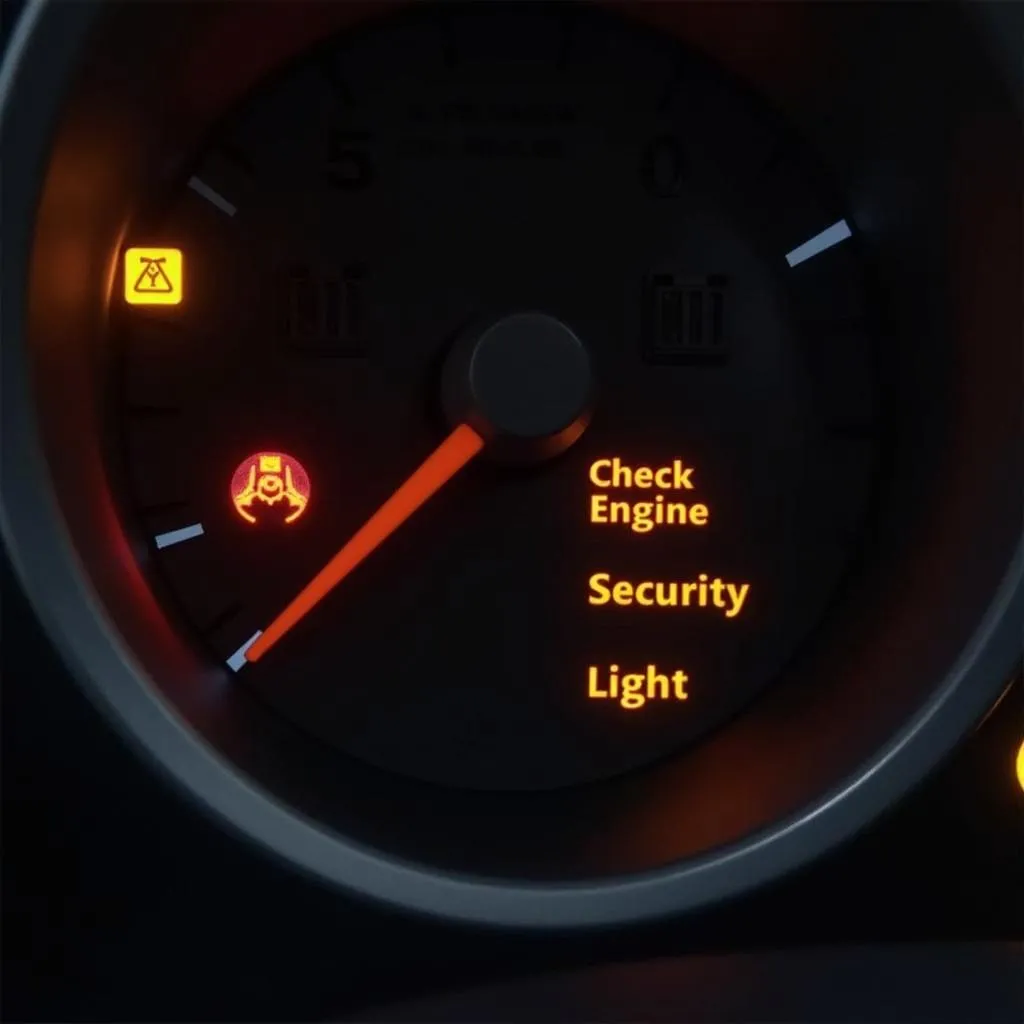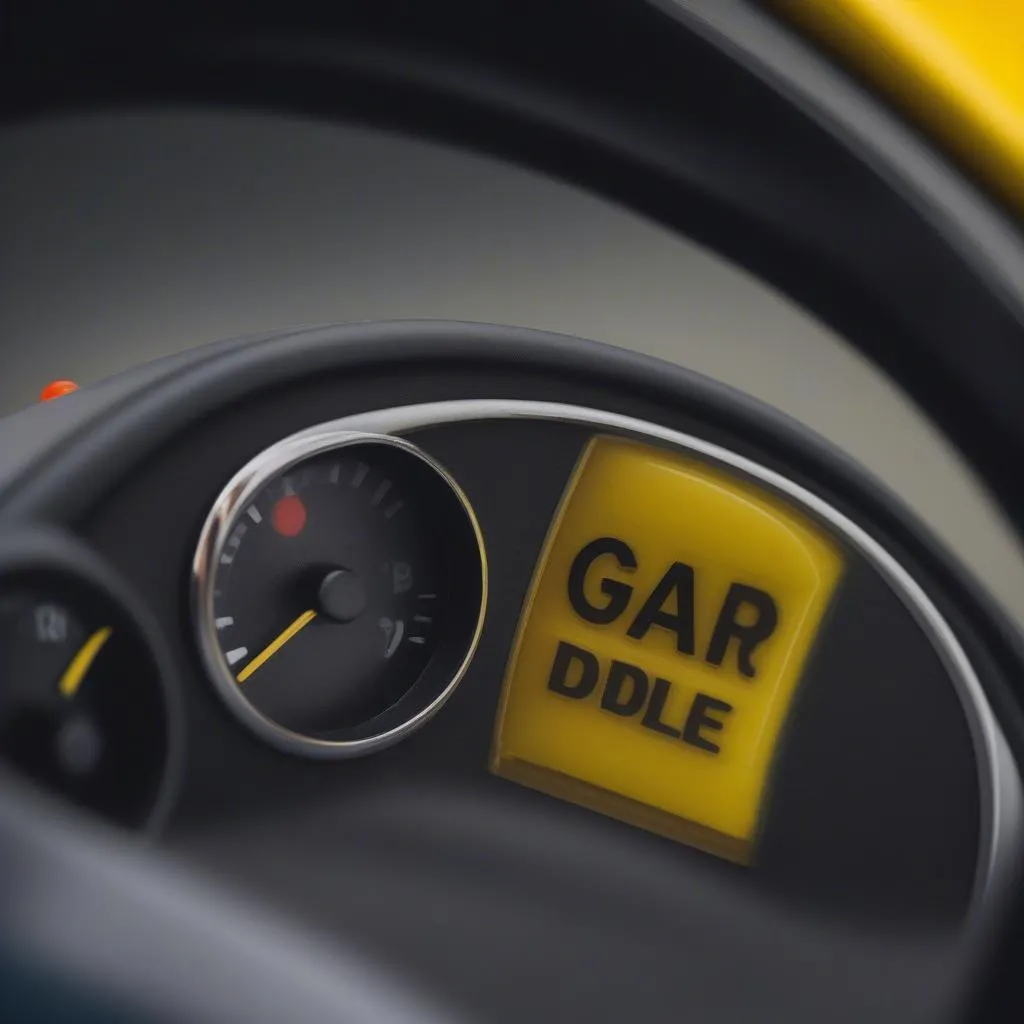The Peugeot Expert is a reliable workhorse, but even the most dependable vans can experience issues. One common problem that Expert owners face is the dreaded brake warning light illuminating on the dashboard. This light is a crucial safety indicator, signaling a potential issue with your van’s braking system that requires immediate attention. Ignoring it could lead to reduced braking performance and increase the risk of an accident.
Understanding Your Peugeot Expert’s Brake Warning Light
The brake warning light on your Peugeot Expert’s dashboard can illuminate for several reasons. While it often signals a problem, the light itself doesn’t pinpoint the exact issue. It serves as a general alert, prompting you to investigate further.
Here’s what your Peugeot Expert’s brake warning light could be telling you:
- Low Brake Fluid: This is the most common culprit. The brake system relies on hydraulic pressure to function, and low brake fluid directly impacts this.
- Worn Brake Pads: Brake pads naturally wear down with use. Once they reach a certain point, the brake warning light will engage, indicating it’s time for a replacement.
- Faulty Brake Sensors: Your Expert has sensors that monitor various components of the braking system. If a sensor malfunctions and sends inaccurate readings, it can trigger the warning light.
- Issues with the ABS System: A problem with the Anti-lock Braking System (ABS), such as a malfunctioning sensor or pump, can also illuminate the brake warning light.
- Electrical Faults: Sometimes, a simple electrical glitch, like a loose connection or wiring issue, can cause the warning light to come on.
Diagnosing the Problem
If your Peugeot Expert’s brake warning light comes on, don’t panic. Here’s a step-by-step guide to help you diagnose the issue:
- Check the Brake Fluid Level: This is the first and easiest step. Safely park your van on a level surface, open the hood, and locate the brake fluid reservoir. The reservoir will have “MIN” and “MAX” markings. If the fluid level is below the “MIN” mark, it needs to be topped up.
- Inspect the Brake Pads: If the brake fluid level is fine, the next step is to check the brake pads. You can often visually inspect the brake pads through the wheel spokes. If the pads are worn down to less than 1/4 inch, they need to be replaced.
- Scan for Fault Codes: If the brake fluid level and brake pads seem fine, it’s time to connect an OBD-II scanner to your Expert’s diagnostic port. The scanner can read fault codes stored in the van’s computer, providing more specific information about the problem.
When to Seek Professional Help
While some brake warning light issues can be diagnosed and even fixed at home, certain problems require professional expertise. Here are instances when it’s best to take your Peugeot Expert to a qualified mechanic:
- You’re Uncomfortable with DIY Car Repair: Brake systems are safety-critical. If you’re not confident in your mechanical skills, it’s always best to err on the side of caution.
- The Problem Persists After Basic Checks: If you’ve checked the brake fluid and brake pads, and the warning light persists, there’s likely a more complex issue at hand.
- The OBD-II Scanner Reveals Complex Fault Codes: Some fault codes indicate problems with the ABS system or other complex components that are best handled by professionals.
“Ignoring your Peugeot Expert’s brake warning light is like ignoring a fire alarm,” says John Miller, a senior automotive technician with over 20 years of experience. “It’s a serious safety risk that shouldn’t be taken lightly. Addressing the issue promptly can save you time, money, and potentially even your life.”
Preventing Future Brake Warning Light Issues
Regular maintenance is key to preventing future brake warning light issues with your Peugeot Expert. Here are some preventive measures you can take:
- Check Brake Fluid Regularly: Make it a habit to check your brake fluid level at least once a month, or every time you check your engine oil.
- Adhere to Brake Pad Replacement Schedules: Refer to your owner’s manual for recommended brake pad replacement intervals.
- Inspect Brake Lines and Hoses for Leaks: Regularly check for any signs of leakage around the brake lines and hoses, especially at the connections.
- Have Your Braking System Inspected Annually: Include a thorough brake system inspection as part of your annual vehicle maintenance.
Conclusion
The brake warning light on your Peugeot Expert is a crucial safety feature. Understanding its various triggers and taking prompt action is essential. By following the steps outlined in this guide and practicing regular maintenance, you can keep your van’s braking system in top condition and ensure safe driving. Remember, when it comes to brakes, safety should always be your top priority. If you’re ever unsure about any aspect of your van’s braking system, don’t hesitate to seek professional help from a qualified mechanic.


